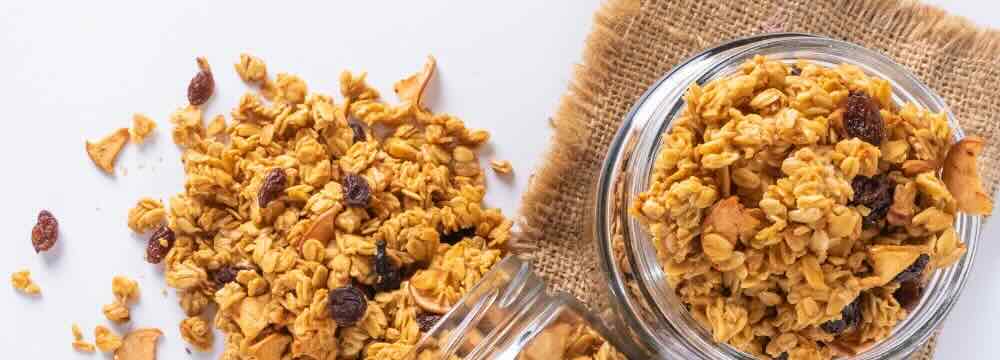
Does “fiber maxxing” make sense, or is it just another viral, and possibly dangerous trend?
It is truly extraordinary to see the degree to which social media influencers and those looking to break into the influencer field will go to make a splash. Unfortunately, the result has been a significant increase in misinformation and unfortunate advice that has caused some to follow diets and exercise programs that don’t work and can, in some cases, lead to disordered eating.
With that said, there is a viral trend that has some legs, known as fiber maxing. Some even call it “Natural Ozempic.”
Some TikTokers claim to consume dozens of grams of fiber per day. Fiber is incredibly healthy – it fills you up, causing you to eat less, and it works wonders for GI and colonic health. However, there are also significant downsides to consuming too much fiber, especially when not accompanied by proper hydration.
So, to that end, let’s talk about fiber and any critical caveats of consuming fiber for weight loss. We’ll see if it makes sense, landing finally on what you should and shouldn’t do.
The Basics
Fiber is an essential component of a healthy diet and can certainly help with weight management. High-fiber foods, such as vegetables, fruits, legumes, and whole grains, can increase feelings of fullness and reduce overall calorie intake by slowing digestion and promoting satiety.
Additionally, fiber supports healthy blood sugar regulation and gut health, both of which can indirectly influence weight management over time. Incorporating adequate fiber into your diet is often associated with better long-term weight outcomes and improved metabolic health.
However, there are some important caveats to consider when increasing fiber intake for weight loss. Rapidly adding enormous amounts of fiber can cause bloating, gas, or gastrointestinal discomfort, especially if water intake is insufficient.
Individuals with certain digestive conditions, such as irritable bowel syndrome (IBS) or inflammatory bowel disease (IBD), may need to tailor their fiber sources and amounts to avoid exacerbating symptoms.
Moreover, fiber alone is not a magic solution for weight loss – it works best as part of a balanced diet combined with appropriate calorie management, protein intake, and regular physical activity.
Fiber Maxxing Do’s:
Consume up to 40g of fiber throughout the day, if possible (bariatric surgery patients should consult their surgeon for appropriate amounts). Ideally, you get fiber from fiber-rich foods, such as lentils, berries, and whole grains. For any deficiencies in fiber, psyllium husk and flaxseed are great natural options. You can also try popping a fiber gummy.
Drink plenty of water while you are taking your fiber. Because fiber-rich foods contain other compounds and a certain level of natural moisture, it isn’t as crucial to super-hydrate (though hydration is always in style!) That said, it’s easy to take too much of a fiber supplement and create significant bloating, intestinal discomfort, and, in extreme cases, intestinal blockage when you aren’t drinking enough water. While we love for you to take fiber seriously, we also don’t want you coming back for surgery to unblock critical gastrointestinal passageways. So, make water your best friend.
And Considerations
Don’t hike up your fiber too quickly. Increasing your fiber intake too fast can cause discomfort, bloating, and digestive issues. To avoid these complications, it’s best to gradually add fiber to your diet while drinking plenty of water.
Don’t just take any fiber. There are various fiber products, some of which are healthier than others. There are plenty of foods and even drinks that claim to provide a lot of fiber; however, they often do so with a healthy dose of problematic nutrients like sugar, fructose, or artificial sweeteners.
Which brings us to the next point: don’t overload on artificial sweeteners because they taste good and you think you’re doing your body good. To be sure, artificial sweeteners are much less problematic for metabolism than regular sugar; however, despite being zero or low-calorie, artificial sweeteners can increase the brain’s craving for sweetness and ultimately contribute to the development of diabetes. We often think of fibrous foods as bland and tasting like cardboard, but you’d be amazed at how many delicious foods and combinations can provide you with plenty of fiber.
Take Away
Rather than following TikTok trends and overloading on fiber, it’s essential to set goals with your weight loss team and a registered dietitian. Doing so can give you a leg up in your weight loss, improving eating habits and contributing to sustained weight loss. Aim for an average of 35 grams of fiber throughout the day, but work up to that point gradually. (Also make sure your dietitian and care team are on board.)
One last tip: After bariatric surgery, you need to prioritize your protein intake, so try to eat your fiber after consuming your protein to ensure you don’t fill up before you’ve absorbed the nutrients you need.


